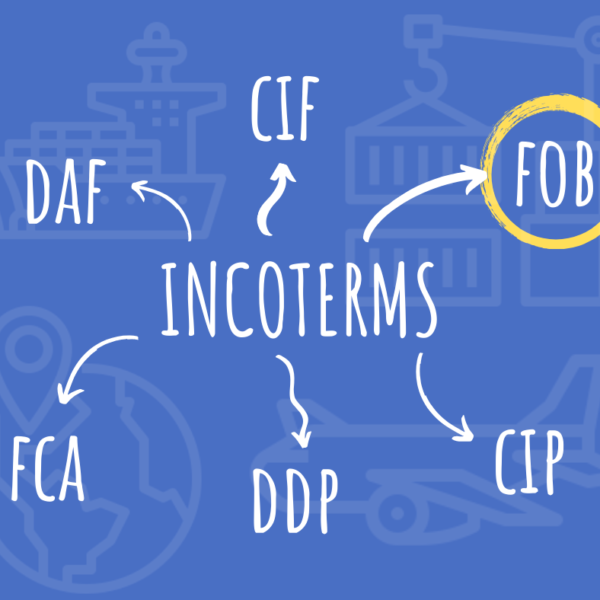Incoterms are a series of pre-defined commercial terms published by the International Chamber of Commerce (ICC). They are used in international commercial transactions and they are related to common contractual sales practices. The Incoterms rules are intended to clearly state the tasks, costs, and risks associated with the international transportation and delivery of goods. One of them is an Incoterm called FOB. “Free on Board” means that the seller’s obligation to deliver is fulfilled when the goods have passed over the ship’s rail at the chosen port of destination. This means that the buyer has to bear all costs and risks to the goods from that moment. What are the obligatory actions to undertake? For the seller it’s to:
- Provide the goods and the invoice in conformity with the contract of sale.
- Obtain at his own risk and expense any required official authorisation and deal with all customs formalities necessary for the export of the goods.
- Deliver the goods on board the vessel at the named port of shipment on the agreed date.
- Bear all risks to the goods until they have passed the ship’s rail at the chosen port of shipment.
- Pay all costs related to the goods until they have passed the ship’s rail at the chosen port of shipment and the costs of customs formalities and other official charges to be paid before exportation.
- Let the buyer know that the goods have been delivered on board.
- Provide at his own expense packaging required for the transport of the goods.
Whereas the buyer must:
- Pay the price as agreed in the contract of sale.
- Obtain at his own risk and expense any import licence and deal with all customs formalities for the import of the goods and their transportation.
- Arrange at his own expense for the carriage of the goods from the chosen port of shipping.
- Take delivery of the goods.
- Bear all risks to the goods from the moment they pass the ship’s rail at the chosen port of destination.
- Pay all costs related to the goods from the moment they pass the ship’s rail at the chosen port of destination and costs of all duties, taxes and other formalities.
- Give the seller information about the vessel name, loading point and required delivery time.
And how is FOB different from another popular Incoterm – CIF? The main difference between an FOB and a CIF agreement is the moment at which the responsibility transfers from seller to buyer. With an FOB shipping, this happens when the shipment reaches the named port of origin, from that time it’s all on the buyer. With a CIF agreement, the seller pays costs and stays liable until the goods reach the chosen port of destination.









